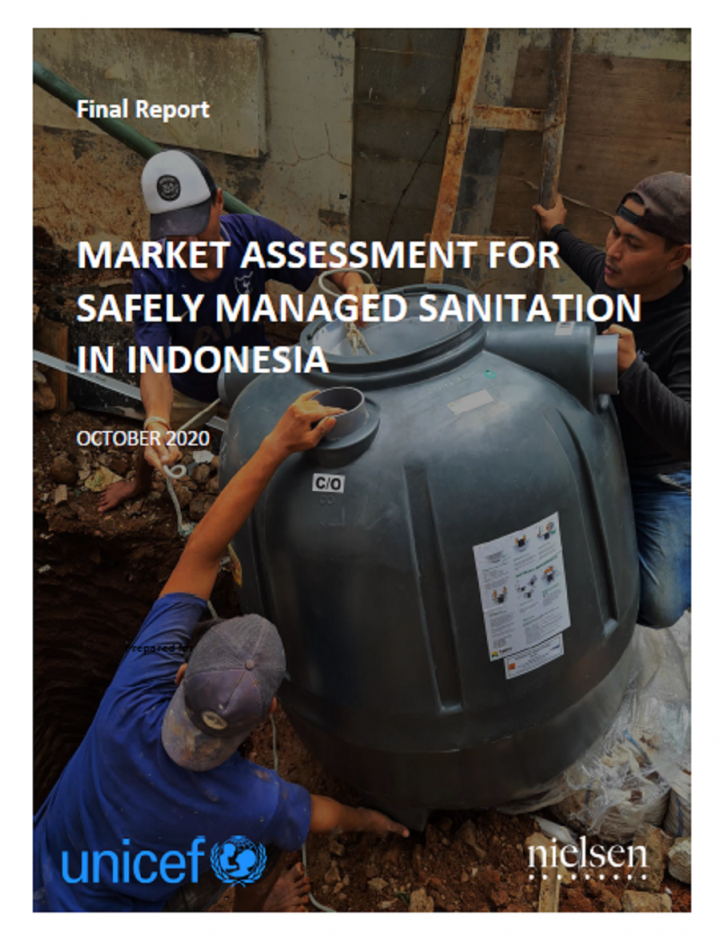
Published in: 2020
Pages: 92
Publisher:
UNICEF
Author:
UNICEF, nielsen
Uploaded by:
SuSanA Admin
Partner profile:
common upload
1562 Views
26 Downloads
Realizing its commitment to providing universal access to sanitation, the Government of Indonesia aims to shift from open defecation free into safely managed sanitation as the national plan for sanitation is targeting to provide 15% of the population with access to safely managed sanitation. Based on the Statistics Bureau, in 2019, there are 77.44% households that have access to sanitation in Indonesia with 7.5% of them is considered as safe sanitation.
Private engagement in sanitation sector is critical as achieving RPJMN target on sanitation would need large resources. The investment costs required are too large to be fully supported by government resources alone. On the other hand, the need to improve access to safely managed sanitation will create business opportunities for the private sector in the provision of toilet and septic tank products, tank emptying services and product financing to support households in building toilets and septic tanks.
The Market Assessment performs in-depth analyzes to help advance markets for safely managed sanitation products and services. Market gap and business opportunities for private sector involvement are assessed along with the supporting factors, including on how to strengthen enabling environment. Targeted and actionable key messages and recommendations are generated to stimulate the demand and supply sites and to increase private sector involvement to ensure available and affordable products and services for all, including poor households and communities in difficult environments.
Bibliographic information
UNICEF, nielsen (2020). Market assessment for safely managed sanitation in Indonesia. UNICEF
Filter tags
East Asia & Pacific English














